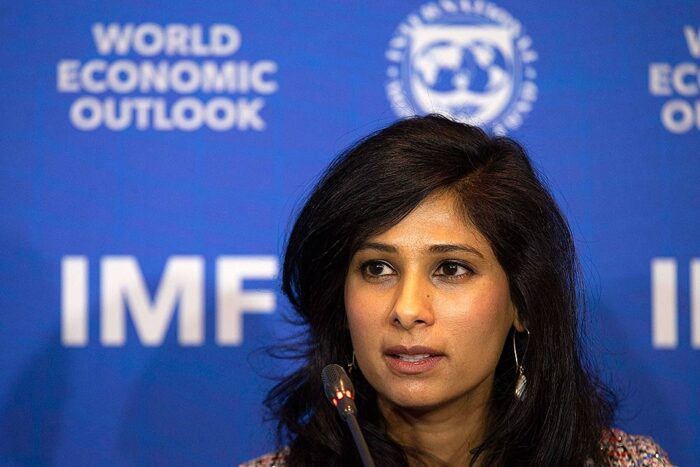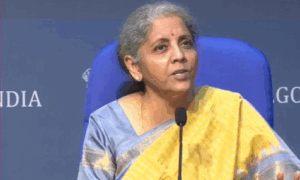
File Picture
The IMF In its latest World Economic Outlook report has predicted a deep global recession this year and the world growth to be – 4.4 per cent, asserting that the global economic crisis is far from over mainly due to the impact of the coronavirus pandemic.
The International Monetary Fund also said the swift recovery in China has surprised on the upside while the global economy’s long ascent back to pre-pandemic levels of activity remains prone to setbacks.
This crisis is however far from over. In our latest World Economic Outlook, we continue to project a deep recession in 2020. Global growth is projected to be -4.4 per cent, an upward revision of 0.8 percentage points compared to our June update, Gita Gopinath, the Chief Economist of the IMF, said. This upgrade owes to somewhat less dire outcomes in the second quarter, as well as signs of a stronger recovery in the third quarter, offset partly by downgrades in some emerging and developing economies.
According to the report, in 2021, growth is projected to rebound to 5.2 per cent, -0.2 percentage points below its June projection. Noting that the COVID-19 pandemic continues to spread with over one million lives tragically lost so far, the Indian-American economist said living with the novel coronavirus has been a challenge like no other.
However, she said the world is adapting as a result of eased lockdowns and the rapid deployment of policy support at an unprecedented scale by central banks and governments around the world. The global economy is coming back from the depths of its collapse in the first half of this year, she said.
Employment has partially rebounded after having plummeted during the peak of the crisis. This crisis is however far from over. Employment remains well below pre-pandemic levels and the labour market has become more polarised with low-income workers, youth, and women being harder hit, she added. She further said the poor are getting poorer with close to 90 million people expected to fall into extreme deprivation this year.
The ascent out of this calamity is likely to be long, uneven, and highly uncertain. It is essential that fiscal and monetary policy support are not prematurely withdrawn, as best possible, Gopinath said. Gopinath said that except for China, where output is expected to exceed 2019 levels this year, output in both advanced economies and emerging market and developing economies is projected to remain below 2019 levels even next year.
Countries that rely more on contact intensive services and oil exporters face weaker recoveries compared to manufacturing-led economies. The divergence in income prospects between advanced economies and emerging and developing economies, excluding China, triggered by this pandemic is projected to worsen, she said.
[the_ad id=’22722′]


















